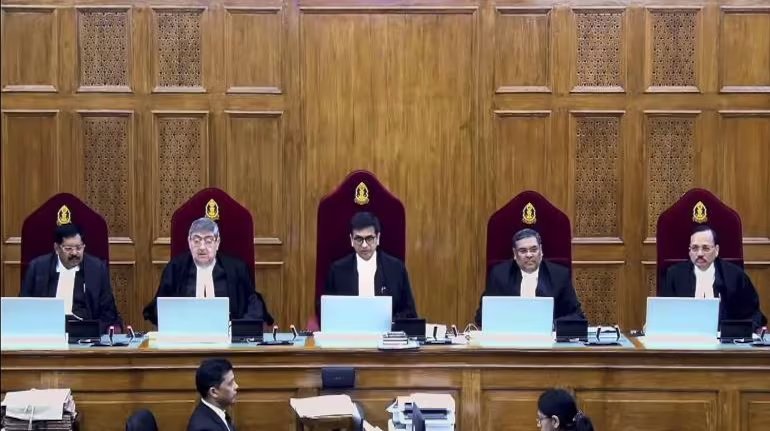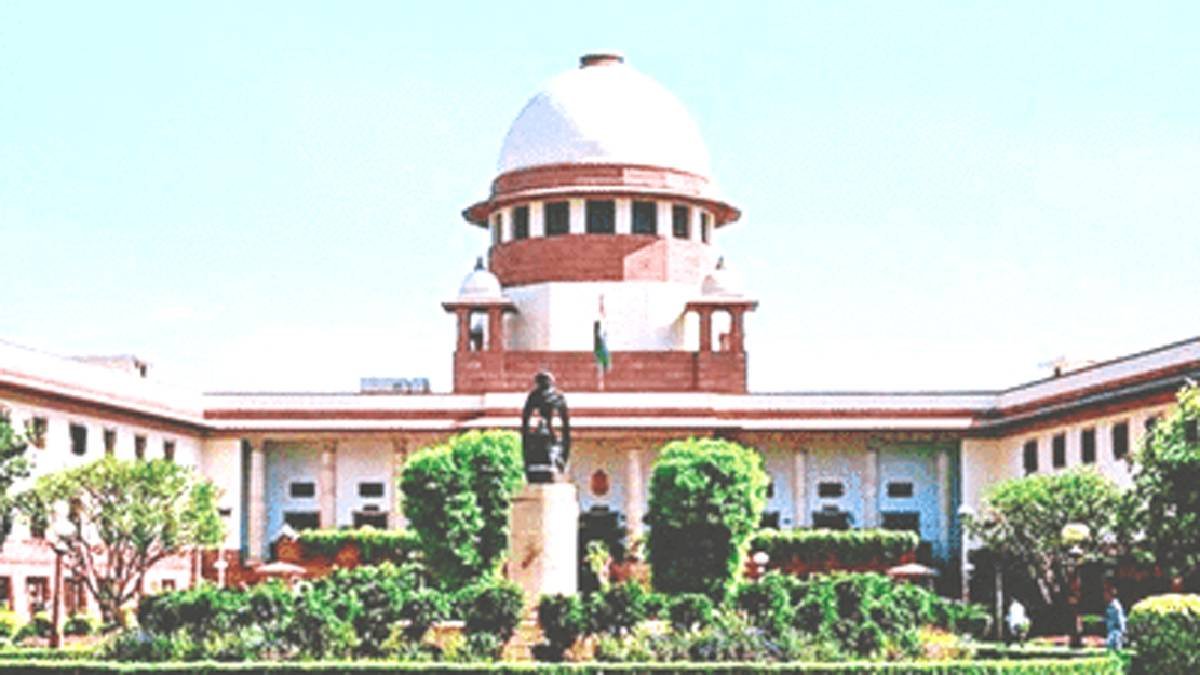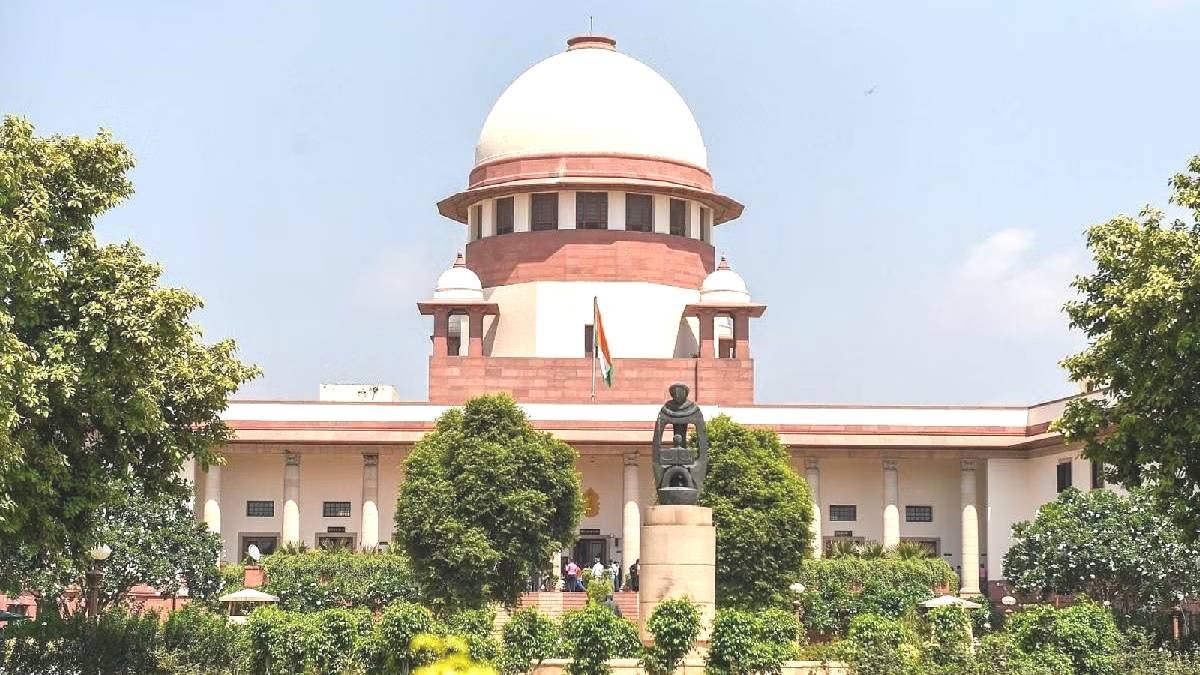NEW DELHI, Dec 11: In an emphatic victory for the Modi government, the Supreme Court on Monday unanimously upheld its decision to abrogate Article 370 of the Constitution that bestowed special status upon the erstwhile state of Jammu and Kashmir, ordered restoration of statehood “at the earliest” and set a September 30, 2024 deadline for holding the assembly elections.
Settling the decades-long debate over the vexed constitutional provision, a five-judge constitution bench headed by Chief Justice D Y Chandrachud delivered three concurring judgements upholding abrogation of Article 370 that provided a unique status to Jammu and Kashmir when it acceded to the Union of India in 1947.
The Supreme Court verdict is a “resounding declaration of hope, progress, unity for our sisters and brothers in J&K, Ladakh,” Prime Minister Narendra Modi, who spearheaded the move as part of the ruling BJP’s long-standing promise, said.
Writing the judgement for himself and Justices B R Gavai and Surya Kant, CJI Chandrachud ruled that Article 370 was a temporary provision and the President of India was empowered to revoke it in the absence of the Constituent Assembly of the erstwhile state whose term expired in 1957.
“Article 370 of the Constitution read together with Article 1 leaves no manner of doubt that the integration of Jammu and Kashmir as a part of the nation, which in itself was a Union of States, was complete. Any interpretation of Article 370 cannot postulate that the integration of Jammu and Kashmir with India was temporary,” the court held.
Justices Sanjay Kishan Kaul and Sanjiv Khanna penned separate but concurring verdicts on the issue.
The apex court also upheld the validity of the union government’s decision to carve out the union territory of Ladakh from the erstwhile state of Jammu and Kashmir.
CJI Chandrachud referred to Solicitor General Tushar Mehta’s statement that Jammu and Kashmir’s statehood will be restored, except for the carving out of the Union Territory of Ladakh. While splitting the state into two Union Territories, the government provided for legislative assembly only for the UT of Jammu and Kashmir.
“In view of the statement we do not find it necessary to determine whether the reorganisation of the State of Jammu and Kashmir into two Union Territories of Ladakh and Jammu and Kashmir is permissible under Article 3.
“However, we uphold the validity of the decision to carve out the Union Territory of Ladakh in view of Article 3(a) read with Explanation I which permits forming a Union Territory by separation of a territory from any State,” he said.
The bench dealt with the validity of the Constitution (Application to Jammu and Kashmir) Order (CO)-272 dated August 5, 2019 by which all provisions of the Constitution of India were applied to J-K and the word ‘constituent assembly’ in Article 370 (3) was modified to ‘Legislative Assembly’.
“Article 370 cannot be amended by exercise of power under Article 370(1)(d),” the bench said, adding, “Paragraph 2 of CO 272 by which Article 370 was amended through Article 367 is ultra vires Article 370(1)(d) because it modifies Article 370, in effect, without following the procedure prescribed to modify Article 370. An interpretation clause cannot be used to bypass the procedure laid down for amendment.”
The bench said recourse must have been taken to the procedure contemplated by Article 370(3) if Article 370 was to cease to operate or was to be amended or modified in its application to Jammu and Kashmir.
“The concurrence of the Government of the State was not necessary for the President to exercise power under Article 370(1)(d) to apply all provisions of the Constitution to Jammu and Kashmir. The exercise of power by the President under Article 370(1)(d) to issue CO 272 is not mala fide. Thus, CO 272 is valid to the extent that it applies all the provisions of the Constitution of India to the State of Jammu and Kashmir,” it said.
The top court upheld the validity of the CO-273 that abrogated Article 370, saying the declaration issued by the President is a culmination of the process of integration and as such is a valid exercise of power.
The CJI said the Constitution was a complete code for constitutional governance.
“The President had the power to issue a notification declaring that Article 370(3) ceases to operate without the recommendation of the Constituent Assembly. The continuous exercise of power under Article 370(1) by the President indicates that the gradual process of constitutional integration was ongoing,” the CJI said in a 352-page verdict.
The petitioners had contended that Article 370 could not have been amended without the concurrence of the state’s Constituent Assembly that ceased to exist in 1957, and argued that the constitutional provision attained permanence in its absence.
“We direct that steps shall be taken by the Election Commission to conduct elections to the Legislative Assembly of Jammu and Kashmir constituted under Section 14 of the Reorganisation Act by September 30, 2024. Restoration of statehood shall take place at the earliest…,” the CJI said.
Dealing with the aspect of sovereignty of Jammu and Kashmir, it said, if a position that J-K has sovereignty by virtue of Article 370 were to be accepted, it would follow that other states which had special arrangements with the Union also possessed sovereignty.
“This is clearly not the case…the special circumstances in Jammu and Kashmir necessitated a special provision, that is, Article 370. Article 370 is an instance of asymmetric federalism. The people of Jammu and Kashmir, therefore, do not exercise sovereignty in a manner which is distinct from the way in which the people of other States exercise their sovereignty. In conclusion, the State of Jammu and Kashmir does not have ‘internal sovereignty/ which is distinguishable from that enjoyed by other States,” it said.
The petitioners had contended the then Maharaja of Jammu and Kashmir, Hari Singh, while signing the Instrument of Accession in 1947 had ceded sovereignty only over defence, communication and foreign affairs.
The CJI said the erstwhile state of J&K does not retain any “element of sovereignty” after the execution of the Instrument of Accession and the issuance of the proclamation dated November 25, 1949 by which the Constitution of India was adopted.
“Thus, Article 370 was introduced to serve two purposes. First, an interim arrangement until the constituent assembly of the State was formed and could take a decision on the legislative competence of the Union on matters other than the ones stipulated in the IoA (instrument of accession), and ratify the Constitution (the transitional purpose); and second, an interim arrangement because of the special circumstances in the State because of the war conditions of the State (the temporary purpose),” it said.
The CJI further said the marginal note to Article 370 states that the Article deals with “temporary provisions with respect to the State of Jammu and Kashmir”.
He said the petitioners did not challenge the issuance of the proclamations under section 92 (governor’s rule) of the Jammu and Kashmir Constitution and Article 356 (President’s rule) of the Indian Constitution until the special status of Jammu and Kashmir was abrogated.
“The challenge to the Proclamations does not merit adjudication because the principal challenge is to the actions which were taken after the Proclamation was issued,” he said.
“The exercise of power by the President after the Proclamation under Article 356 is issued is subject to judicial review. The exercise of power by the President must have a reasonable nexus with the object of the Proclamation,” the CJI asserted.
He said those challenging the exercise of power must prima facie establish that it was a mala fide or extraneous exercise of power.
Pronouncing his verdict, Justice Kaul said the purpose of Article 370 was to slowly bring J&K at par with other Indian states.
He ordered the setting up of an “impartial truth-and-reconciliation commission” to probe human rights violations, both by state and non-state actors, at least since 1980.
Justice Khanna, in his separate verdict, concurred with the CJI and Justice Kaul and gave his own reasons for the conclusion.
As the news of the verdict came in, National Conference (NC) vice president Omar Abdullah said in a post on X that he was disappointed, but not disheartened.
“The struggle will continue,” Abdullah asserted.
People’s Democratic Party (PDP) chief Mehbooba Mufti said the Supreme Court’s decision is “nothing less than a death sentence”, and it marked the defeat of the idea of India with which the Muslim-majority state had acceded in 1947.
“Today an unconstitutional and illegal act that took place in the Parliament was declared legal. It is nothing less than a death sentence not only for Jammu and Kashmir but for the idea of India,” Mufti said in a five-minute video message she posted on X.
Democratic Progressive Azad Party (DPAP) chairperson Ghulam Nabi Azad said the verdict was “sad and unfortunate” but it had to be accepted. (PTI)












